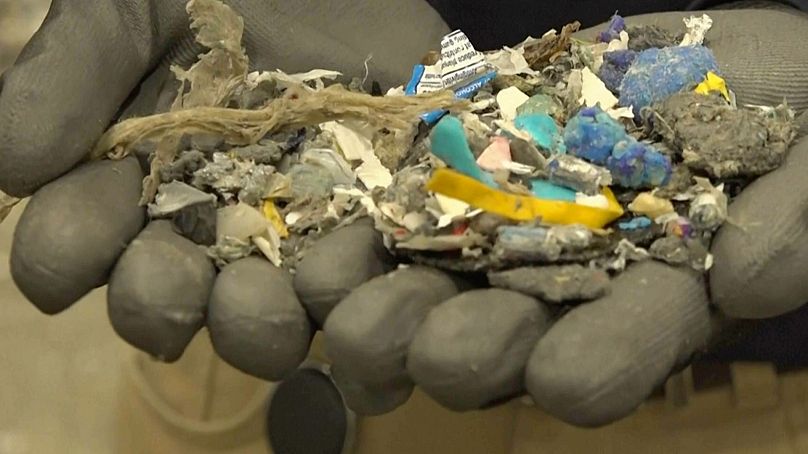Bottled water contains 100 times more plastic nanoparticles than previously thought
Bottled water contains 100 times more plastic nanoparticles than previously thought
After making a shocking discovery of nearly a quarter of a million tiny plastic pieces per litre in bottled water, researchers have significantly reduced their bottled water use. The findings, categorized for the first time using a microscope with dual lasers, revealed the presence of microplastics and nanoplastics in the average litre of bottled water. The study, conducted by researchers at US universities Columbia and Rutgers, examined samples from three common bottled water brands, detecting particle levels ranging from 110,000 to 400,000 per litre, with an average of around 240,000.
Nanoplastics, particles less than a micron in size, were observed in much higher quantities—about 10 to 100 times more—compared to slightly larger microplastics. These nanoplastics, ranging from the visible 5 millimetres to one micron, are causing concern regarding their potential impact on health. The plastic appears to originate from the bottle itself and the reverse osmosis membrane filter used to exclude contaminants.

plastic waste from bottled water
Despite the heightened awareness, researchers cannot definitively determine the health risks associated with nanoplastic pieces. The International Bottled Water Association emphasizes a lack of standardized measuring methods and scientific consensus on potential health impacts, cautioning against unnecessary fear among consumers. The American Chemistry Council, representing plastics manufacturers, declined immediate comment.
Amid the global issue of plastic pollution, exceeding 430 million tonnes annually, microplastics are prevalent in oceans, food, and drinking water. Efforts toward a global plastics treaty continue, acknowledging the widespread presence of microplastics. The study’s authors, all co-authors, have personally reduced their bottled water use in response to their research. While experts commend the study, there remains an overall sense of uncertainty about the risks associated with fine plastic particles.
- You must be logged in to reply to this topic.






